Monsoon flooding: Near clogged Leh, streams present looming danger
Non-removal of solid waste has narrowed water passage
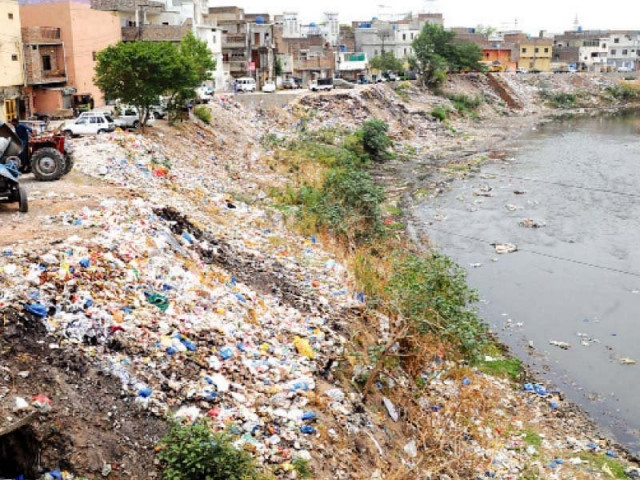
Large quantity of waste can be seen dumped at the banks of Nullah Leh in Dhoke Chiraghdin area. PHOTO:AGHA MEHROZ/EXPRESS
A visit to different areas from Ganjmandi Bridge to Dhoke Chiraghdin revealed that construction material in large quantity was being dumped on the banks.
Waste material and garbage was being deposited in different streams other than Leh too, while the concerned authorities have yet to take any action to clean them.
“Construction waste from recently completed Metro Bus track is still present on the banks of Leh. The construction waste has narrowed the water passage. Heavy rains can cause flood creating problems for people living near Leh,” said Khurram Shahzad who lives at Darya Abad near Ganjmandi.
Wild bushes and plants have also mushroomed in smaller streams blocking water flow.
The situation of other small and big drains is not much different.
There were 105 streams flowing through the urban areas of the city.
Advocate Anwar Dar, who filed a petition in the Lahore High Court (LHC)’s Rawalpindi bench for cleanliness of the streams, said authorities were not concerned about drudging and digging.
In every monsoon season, there were incidents of drowning of children in the city, he said. The lawyer said that Rawalpindi Waste Management Company (RWMC) was responsible for removal of waste and debris from all the streams but the company had failed to carry out its duties.
The Express Tribune tried time and again to contact the RWMC Senior Manager Operations, Muhammad Husnain, but he was not available for comments.
Water and Sanitation Agency (WASA) Spokesperson Umer Farooq, however, said that the agency had written time and again to the Rawalpindi commissioner, who was also acting as Rawalpindi Development Authority (RDA) director general, to get the construction waste removed.
However, the authority could not get the task done even after one year of completion of the Metro Bus project, he said.
Published in The Express Tribune, June 14th, 2016.

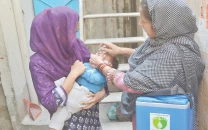
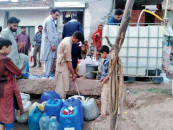

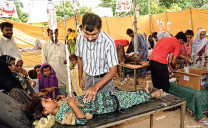
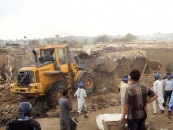
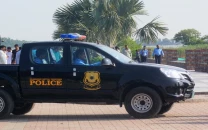



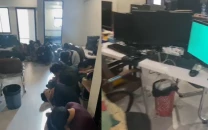

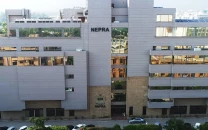






COMMENTS
Comments are moderated and generally will be posted if they are on-topic and not abusive.
For more information, please see our Comments FAQ